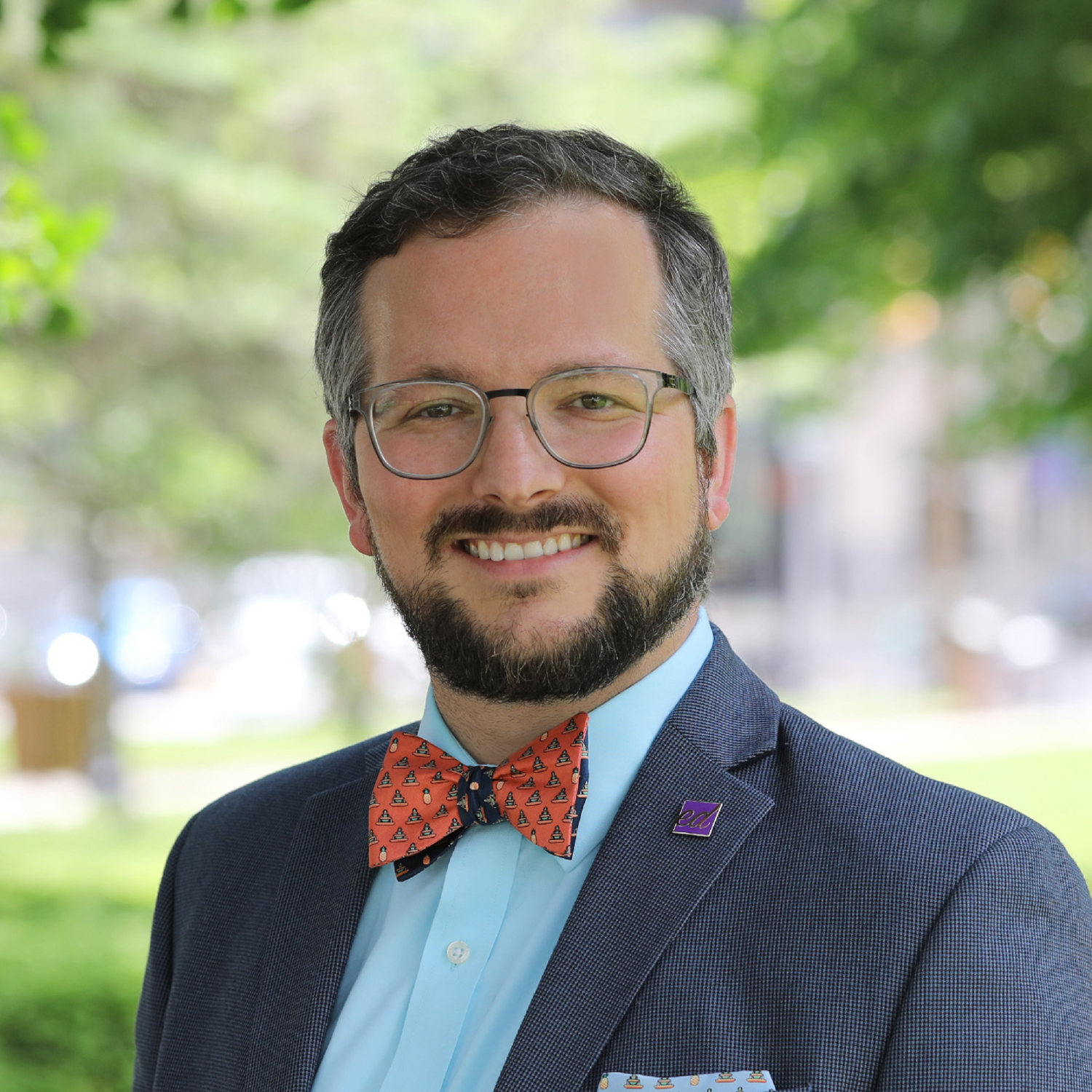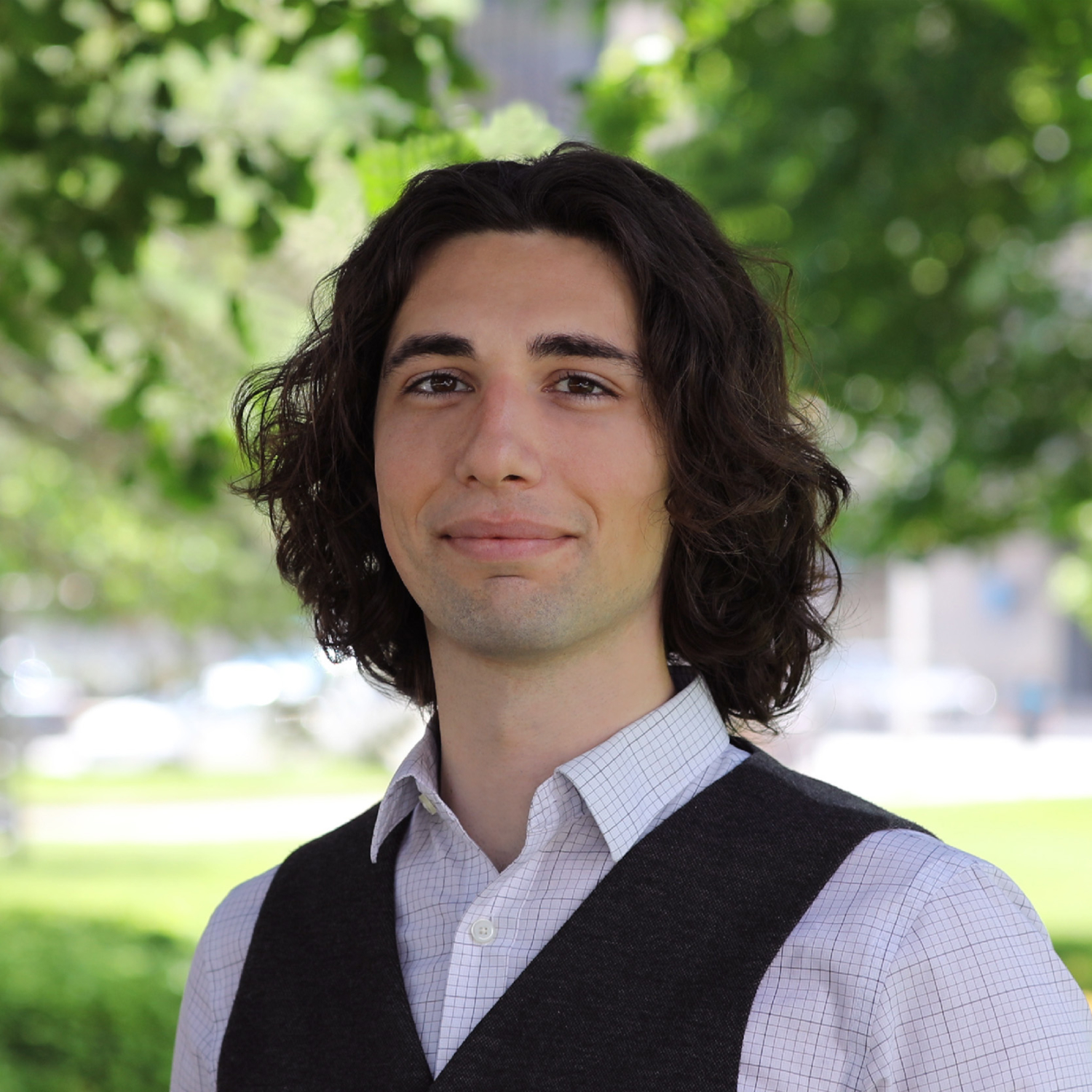25 Years: 25 Most Significant School Choice Research Findings
Much of the success of the school choice movement has come because of the credible, relevant and impactful research that has been done by EdChoice and so many of our partners and respected colleagues. School choice advocates, from parent activists to policy wonks, use this information about the real effects of school choice policies to educate the public and policymakers.
We asked our friends and partners in the education reform movement to help us identify 25 of the most effective pieces of research published over the last 25 years.
It was no easy task to create such a list!
We broke the research into four categories to account for different types of research.
- Historical Importance to the Educational Choice Movement
- Historical Importance to EdChoice
- Importance to the Evolution of Research Methods
- Syntheses and Reviews
Did we miss one? Let us know!
-
Historical Importance to the Educational Choice Movement
https://doi.org/10.1177/0013124599031002005
“Two studies of the Milwaukee Parental Choice Program–America’s first state-funded private school voucher program–provided some of the first empirical evidence supporting the effectiveness of vouchers using highly rigorous quasi-experimental research designs. Rouse (1998) and Greene, Peterson, and Du (1999) creatively exploited random variation in voucher offers due to program oversubscription to determine that MPCP voucher usage positively impacted student achievement, especially in math. Since then, we have seen strong variation across programs in achievement outcomes, types of students affected, and variation in program design. These studies paved the way for future studies leveraging random assignment to understand the impacts of vouchers on students.” -Jon Mills
“As we’ve learned now in education policy, test scores fail to fully capture what all we tend to value and care about in terms of K-12 educational outcomes. While the evidence remains mixed on the impacts of private choice programs on students’ test scores, this report concludes that there appear to be more consistent, positive effects on college enrollment, an educational outcome that likely encapsulates a broader set of schooling impacts.” -Dan Bowen
https://doi.org/10.1257/app.6.1.133
“David Figlio’s work on tax credits in Florida is important. It uses sophisticated methods to show that the introduction of a tax credit scholarship program has a positive effect on student learning in nearby public schools. That research casts serious doubt on the claim that private school choice programs has an adverse effect on students in the public schools.” -Paul Peterson
“Whether private school choice programs adversely affect public schools is an important question. In a large-scale analysis of over 3 million students, Figlio and Hart (2014) investigate the effects of Florida’s statewide tax-credit scholarship program on public school students. The authors find evidence that public school students may slightly benefit academically after the introduction of a tax-credit scholarship program.” -Dan Hamlin
“The research by David Figlio and coauthors regarding the positive competitive effects of means-tested vouchers on public school performance has helped to shift the narrative from means-tested vouchers taking something away from public schools to one of them benefiting public school students (albeit in a relatively modest way). His 2014 publication with Cassandra Hart showed that a voucher program tied to family income in Florida had positive competitive effects, and then his 2016 publication with Krzysztof Karbownik shows that a very differently-structured voucher program tied to public school performance in Ohio also had positive competitive effects. His 2020 paper with Hart and Karbownik demonstrates that the competitive effects of Florida’s program have only become more positive as the program matured and scaled up.” -anonymous
“Choice reduces racial segregation: Overcoming legacies of racial injustice remains an urgent priority for building a better America, so one of the most potentially damaging myths about private school choice is that it increases racial segregation. On the contrary, in addition to all its other benefits, choice remains one of the most potent tools we have for breaking down racial barriers and building educational communities where children learn that peers of every color are all their fellow Americans. Bonus points because this research also had to clean up the mess left behind by decades’ worth of poor empirical methods in studying segregation.” -Greg Forster
When Is a School Segregated? Making Sense of Segregation 65 Years after Brown v. Board of Education, Urban Institute
“Private schools account for a large share of segregation relative to their enrollment share. Charter schools’ contributions are high often because of where they are located. But traditional public schools serve almost 90 percent of students—segregation cannot be eliminated unless these schools better integrate.” -abstract
 The Effect of Charter Schools on School Segregation (EdWorking Paper 20-308)
The Effect of Charter Schools on School Segregation (EdWorking Paper 20-308)
“Charter schools increase school segregation for Black, Hispanic, White, and Asian students. The effect is of modest magnitude; segregation would fall 6 percent were charter schools eliminated from the average district. Analysis across varied geographies reveals countervailing forces. In metropolitan areas, charters improve integration between districts, especially in areas with intense school district fragmentation.” -abstract
http://journal.apee.org/index.php/Parte3_2020_Journal_of_Private_Enterprise_Vol_35_No_3_Fall
“Using matched student-level data, we find that exposure to the [voucher] program in eight or ninth grade predicts lower rates of conviction for criminal activity and lower rates of paternity suits by ages twenty-five to twenty-eight. Specifically, exposure to the [voucher program] is associated with a reduction of around 53 percent in drug convictions, 86 percent in property damage convictions, and 38 percent in paternity suits. The program effects tend to be largest for males and students with lower levels of academic achievement at baseline.” -abstract
https://doi.org/10.1162/edfp_a_00286
“The findings from this competitive effects analysis indicate that public school performance in ELA and math was either unaffected or modestly improved in response to competition from the LSP. The primary contribution of this study is that it analyzes competitive effects in a new context, using multiple identification strategies. The results presented here are consistent with the hypothesis that voucher programs such as the LSP increase student performance by “lifting all boats” (Friedman 1962; Hoxby 2003). The competitive threat of the LSP ranges from negligible to modestly positive in the public schools exposed to the threat of competition, with effect sizes that are neutral or positive. As large-scale school voucher programs continue to expand across the country, policy makers who are hopeful for the potential for market-based reforms to improve student outcomes across all sectors should be heartened by these findings.” -conclusion
-
Historical Importance to EdChoice
Liberty & Learning: Milton Friedman’s Voucher Idea at Fifty, Cato Institute
“Fifty years ago, Milton Friedman had the ground-breaking idea to improve public education with school vouchers. By separating government financing of education from government administration of schools, Friedman argued, parents at all income levels would have the freedom to choose the schools their children attend. Liberty & Learning is a collection of essays from the nation’s top education experts evaluating the progress of Friedman’s innovative idea and reflecting on its merits in the 21st century. The book also contains a special prologue and epilogue by Milton Friedman himself. The contributors to this volume take a variety of approaches to Friedman’s voucher idea. All of them assess the merit of Friedman’s plan through an energetic, contemporary perspective, though some authors take a theoretical position, while others employ a very pragmatic approach.” -Cato Institute
This was the first fiscal analysis from our organization that had a national scope. It birthed a stream of research continued by Jeff Spalding and now Marty Lueken that has only grown in size and depth along the way.
“The results of the surveys completed by 754 GOAL parents indicate they have a variety of reasons for transferring their children from public schools to private schools and that they rely on a wide variety of information in evaluating prospective private schools. Key findings from the survey include: Surveyed parents were overwhelmingly satisfied with their private school choice, with 98.6 percent of parents being “very satisfied” or “satisfied” with their decision to send their children to a private school using a GOAL scholarship; the top five reasons why parents chose a private school for their children are all related to school climate and classroom management, including “better student discipline” (50.9 percent), “better learning environment” (50.8 percent), “smaller class sizes” (48.9 percent), “improved student safety” (46.8 percent), and “more individual attention for my child” (39.3 percent); student performance on standardized test scores is one of the least important pieces of information upon which parents base their decision regarding the private school to which they send their children. Only 10.2 percent of the parents who completed the survey listed higher standardized test scores as one of their top five reasons why they chose a particular private school for their child.” -executive summary
Many Americans are under the misperception that private schools in the United States are unregulated. In fact, private schools follow rules regarding health and safety, school curricula, testing, and more. This report looks at regulations on private schools on a state-by-state basis and was the organization’s first look at regulations on private schools.
Although not original research, this was the organization’s first compendium of school choice research and the multiple editions over the years paved the way for The 123s of School Choice: What the Research Says About Private School Choice Programs in America.
This was the organization’s first foray into national polling by and subsequent years form the Schooling in America series. The experience in national polling on an annual basis over the years eventually led to the launch of the monthly Public Opinion Tracker in 2020.
-
Importance to the Evolution of Research Methods
The Education Gap: Vouchers and Urban Schools, Brookings Institution Press
“Howell and Peterson and their associates have long been among the most visible researchers in the area of school choice, particularly vouchers, and this book continues that pattern. Peterson and his colleagues produced the bulk of available research on privately funded voucher programs, and they have been active in analyzing or reanalyzing data on both the Milwaukee and Cleveland Programs.” –Kim Metcalf
“A major contribution of this study lies in its application of randomized field trials…[which] are rarely used in educational research.” –Journal of Politics
“Howell and Peterson have set a very high standard not only for voucher research but for the evaluation of educational reforms more generally….Their usage of sophisticated methodologies and their breadth of outcome measurements establish this as the definitive scholarly work on voucher programs in the United States.” –American Journal of Education
“A fascinating and highly readable account of the experience of school voucher programmes in the United States.” –Education Economics
“Howell and Peterson have made a tremendous contribution to the study of small-scale voucher programs and their consequences. The methods and findings presented in The Education Gap establish a new standard of excellence in policy research and lay the ground for even more carefully calibrated future work.” –Perspectives on Politics
“This is the most important book ever written on the subject of vouchers.” -John E. Brandl, dean, Hubert H. Humphrey Institute of Public Affairs, University of Minnesota
“The Education Gap will provide an important intellectual battleground for the debate over vouchers for years to come.” -Alan B. Krueger, Princeton University
“Must reading for anyone interested in the battle over vouchers in America.” -John Witte, University of Wisconsin
https://doi.org/10.1016/j.jpubeco.2007.06.009
“Rajashri Chakrabarti’s study on the nature of the benefits of private school choice for students who remain in public schools was fascinating. She found that when the Milwaukee voucher program made two design changes that students in Milwaukee public schools benefitted. Specifically, her work finds that when religious private schools were allowed to accept voucher students (increasing the number of choices for families) and that when more money ‘followed the child’ to the school of their family’s choice, that students who remained in public schools experienced larger learning gains. That is, more choice for families appeared to lead to public schools doing a better job for their students–perhaps so they do not lose them to private schools.” -Ben Scafidi
https://doi.org/10.1002/pam.21691
“The District of Columbia Opportunity Scholarship Program (OSP) has operated in the nation’s capital since 2004, funded by a federal government appropriation. Because the program was oversubscribed in its early years of operation, and vouchers were awarded by lottery, we were able to use the “gold standard” evaluation method of a randomized experiment to determine what impacts the OSP had on student outcomes. Our analysis revealed compelling evidence that the DC voucher program had a positive impact on high school graduation rates, suggestive evidence that the program increased reading achievement, and no evidence that it affected math achievement. We discuss the implications of these findings in light of recent policy developments including the reauthorization of the OSP and the enactment or expansion of more than a dozen school voucher or voucher‐type programs throughout the United States in 2011 and 2012.” -abstract
https://doi.org/10.1016/j.jpubeco.2014.11.013
“We provide the first experimental estimates of the long-term impacts of a voucher to attend private school by linking data from a privately sponsored voucher initiative in New York City, which awarded the scholarships by lottery to low-income families, to administrative records on college enrollment and degree attainment. We find no significant effects on college enrollment or four-year degree attainment of the offer of a voucher. However, we find substantial, marginally significant impacts for minority students and large, significant impacts for the children of women born in the United States. Negative point estimates for the children of non-minority and foreign-born mothers are not statistically significant at conventional levels. The information needed to match students to administrative data on postsecondary outcomes was available for 99% of the sample. We find evidence of substantial bias due to attrition in the original evaluation, which relied on data collected at follow-up sessions.” -abstract
Schools, Vouchers, and the American Public, Brookings Institution Press
“Polls have shown that the public supports vouchers, that the public opposes them, and that the public is split almost evenly down the middle. Which poll is to be believed? In a brilliant, definitive analysis of the subject, Terry Moe tells us who does—and does not—like vouchers as well as who says they will use them, if the opportunity arises. He illuminates not only the school choice debate but the nature of public opinion more generally.” -Paul Peterson, Harvard University
“No book tells us more about how Americans evaluate schools. Moe’s rigorous scrutiny of public thinking about education is filled with surprising, unanticipated findings about how popular reasoning about education is shaped by attitudes about religion, race, equality, and government. This book will be the starting point for anyone interested in any school reform, not just vouchers. A model analysis of public opinion on a public policy.” -Samuel Popkin, University of California-San Diego
“Whether one agrees or disagrees with the conclusions of this book, anyone interested in education policy in America should read it. So should anyone interested in the connections between public opinion and public policy. It will discomfit liberals, challenge conservatives,
the mother, market theory the father. In the seventies the latter abandoned his mate and kidnapped their offspring but, somehow, could never raise the baby on his own. According to Terry Moe, a reconciliation of the parents is now in the making, and school choice may yet reach its genetic potential as the hope of the poor. It’s the love story of the year.” -John E. Coons, University of California
“Teach political scientists, and enlighten all of us.” -Jennifer L. Hochschild, Harvard University
“Terry Moe’s research has had a major influence on how I’ve approached questions and polling around school choice concepts and policies. Twenty years later, this book continues to have significant reach and implications for the fields of public opinion, political science, public policy, and for those activists engaged in K-12 education reform.” -Paul DiPerna, EdChoice
https://doi.org/10.1162/003355398555685
“Rouse (1998) stands out to me — for its novelty in starting this literature and for setting a standard in two ways. First, setting a research standard in her ability to use a lottery to estimate the effect of a voucher program. Second, for setting a baseline expectation that private school choice can improve outcomes, particularly for disadvantaged groups.” -Angela Dills
-
Syntheses and Reviews
https://doi.org/10.1080/09243453.2021.1906283
“These 21 studies represent 11 different voucher programs. Utilizing a random effects and robust variance estimation framework, we find moderate evidence of positive achievement impacts of private school vouchers, with substantial effect heterogeneity across programs and outcome years. Suggestive evidence exists that voucher interventions may be cost effective even for null achievement impacts.” -abstract
https://doi.org/10.1177/0895904819874756
“School-choice policies are expected to generate healthy competition between schools, leading to improvements in school quality and better outcomes for students. However, the empirical literature testing this assumption yields mixed findings. This systematic review and meta-analysis tests this theory by synthesizing the empirical literature on the competitive effects of school choice on student achievement. Overall, we found small positive effects of competition on student achievement.” -abstract
https://doi.org/10.1080/15582159.2017.1395619
“The two fastest growing school choice options are charter schools and private school choice programs, which include vouchers, tax credit scholarships, and education savings accounts. Most research assessing the effects of these programs focuses on student achievement. I review the literature to determine the impact public and private school choice programs have on high school completion, college enrollment, and college persistence which, ultimately, may be different and of greater consequence than test scores. Of the limited research available, it appears that both type of school choice programs have a positive effect on educational attainment overall, however, more research is needed.” -abstract
https://doi.org/10.1257/jel.20150679
“We review the theoretical, computational, and empirical research on school vouchers, with a focus on the latter. Our assessment is that the evidence to date is not sufficient to warrant recommending that vouchers be adopted on a widespread basis; however, multiple positive findings support continued exploration. Specifically, the empirical research on small-scale programs does not suggest that awarding students a voucher is a systematically reliable way to improve educational outcomes, and some detrimental effects have been found. Nevertheless, in some settings, or for some subgroups or outcomes, vouchers can have a substantial positive effect on those who use them. Studies of large-scale voucher programs find student sorting as a result of their implementation, although of varying magnitude. Evidence on both small-scale and large-scale programs suggests that competition induced by vouchers leads public schools to improve. Moreover, research is making progress on understanding how vouchers may be designed to limit adverse effects from sorting, while preserving positive effects related to competition. Finally, our sense is that work originating in a single case (e.g., a given country) or in a single research approach (e.g., experimental designs) will not provide a full understanding of voucher effects; fairly wide-ranging empirical and theoretical work will be necessary to make progress.” -abstract
https://doi.org/10.1080/15582159.2017.1395615
“I review the literature that quantifies the effects of private school choice programs on three important civic outcomes for students in the United States: tolerance, civic engagement, and social order. Out of the 11 studies on private school choice that examine these civic outcomes, the impacts are null to positive for tolerance, null to positive for civic engagement, and positive for social order. None of the studies indicates that private school choice negatively affects these vital civic outcomes.” -abstract































